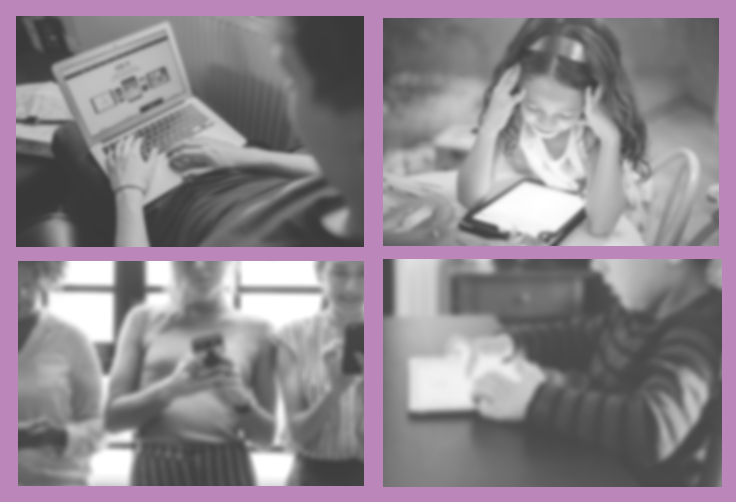Student Online Life: Targeted Digital Citizenship Education
October 15-19, 2018 is Digital Citizenship Week. One week of awareness is great, but it is not enough. In this blog post

Current librarian digital citizenship practice is about helping our students use online content in responsible ways. We should be teaching our students that you cannot just use anything you want from the internet in any way that you want. We should be communicating to our teachers that we can help them when they are having students use information or images from the web. Librarians should be demonstrating for every assignment how to find, evaluate, and use information from credible sources. We should be talking about copyright and how to use citations to give attribution. This important digital citizenship skill set is often overlooked by administrators and teachers because it is easy to let this go, and because librarians are not making these lessons and resources readily available in the curriculum. The bottom line is that
We all know that the online world is changing and shifting at a rapid pace. Often, as educators, we aren’t fully aware of what our students are really doing online. I know I am not a gamer, so the world of online gaming is something I am aware of, but don’t participate in. I am also not an avid YouTube subscriber. I don’t watch a lot of YouTube for pleasure nor do I subscribe to popular YouTubers. I give these two examples to explain that even though we have to teach digital citizenship, we may not completely understand the online communities and environments our students are spending a significant amount of time in.
The responsibility of helping kids be good digital citizens often falls to parents. Parents, after
Modeling appropriate online behaviors and educating students about what it means to be a good digital citizen is becoming increasingly important. I talk to students all the time about their online reputation. A quick and easy Google search can reveal a great deal about a person. I try to help my students understand that something their 15 year-old self finds funny or appropriate to post or share online, may not be something their 30 year-old self appreciates, especially if it costs them a job or opportunity. I ask my students to think about showing their online life to a respected family member or someone they might want to marry, and would they be proud of everything that shows up.
At the start of the school year I always do a digital citizenship lesson with my Career and Technology classes. This year, I revamped some outdated content my school had been using. With the help of my Digital Learning Coach, we created a Google Site to house the content and paired the eight “stations” of content with GooseChase missions. After the students successfully completed the missions, they were given an access code for a Google Quiz that I made to accompany the stations which I dropped into each teacher’s Google Classroom. Here is a Google Folder I made with copies of content and other resources for this activity. I want to encourage other librarians to create and share the content we use to teach and model digital citizenship!
Our students are growing up in a completely digital world. Their entire life, often from birth, is documented online through social media, images, videos, and online profiles. We have to start helping them understand this fact and recognize that what goes online, stays online, forever! We should be talking about digital citizenship issues every day, with every kid, in every school.
Would you like to share your thoughts?
Your email address will not be published. Required fields are marked *